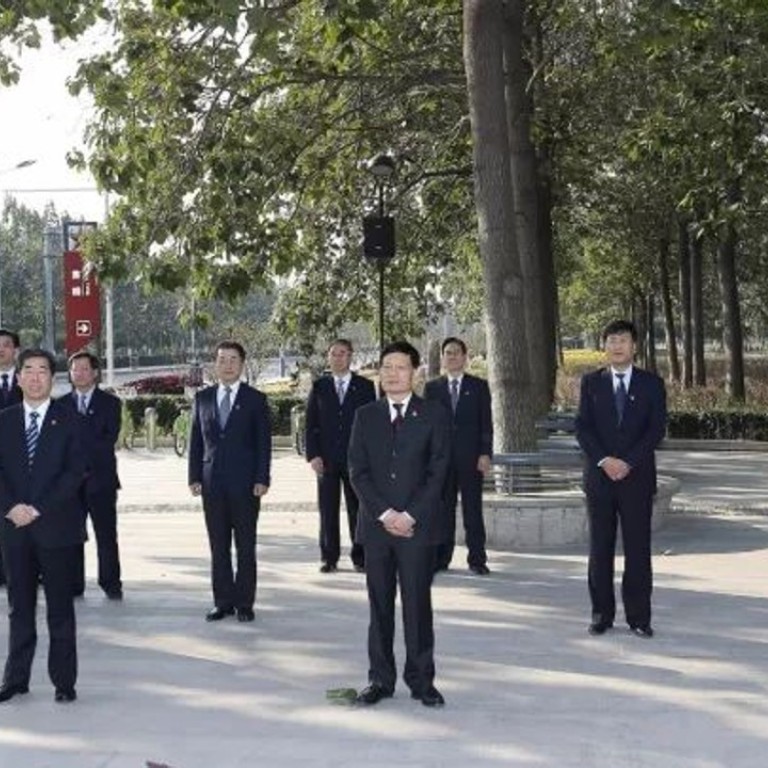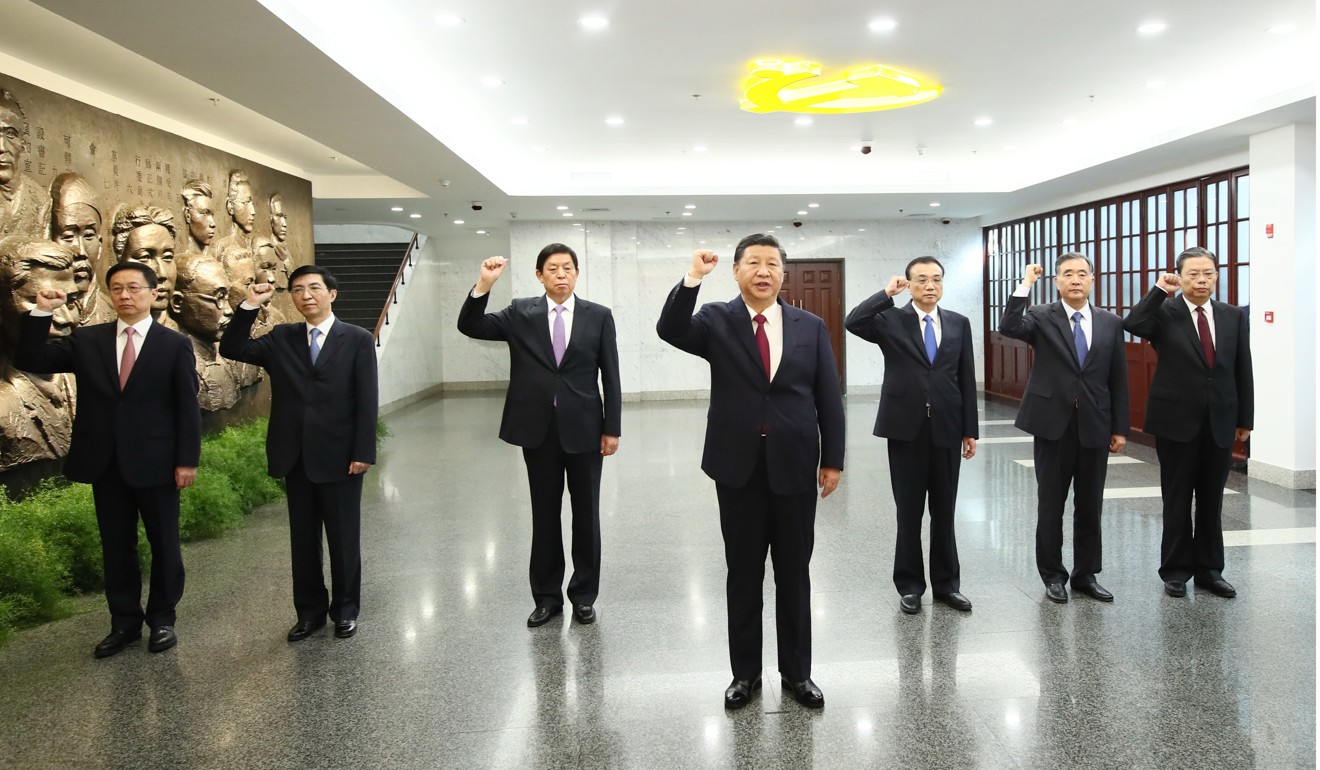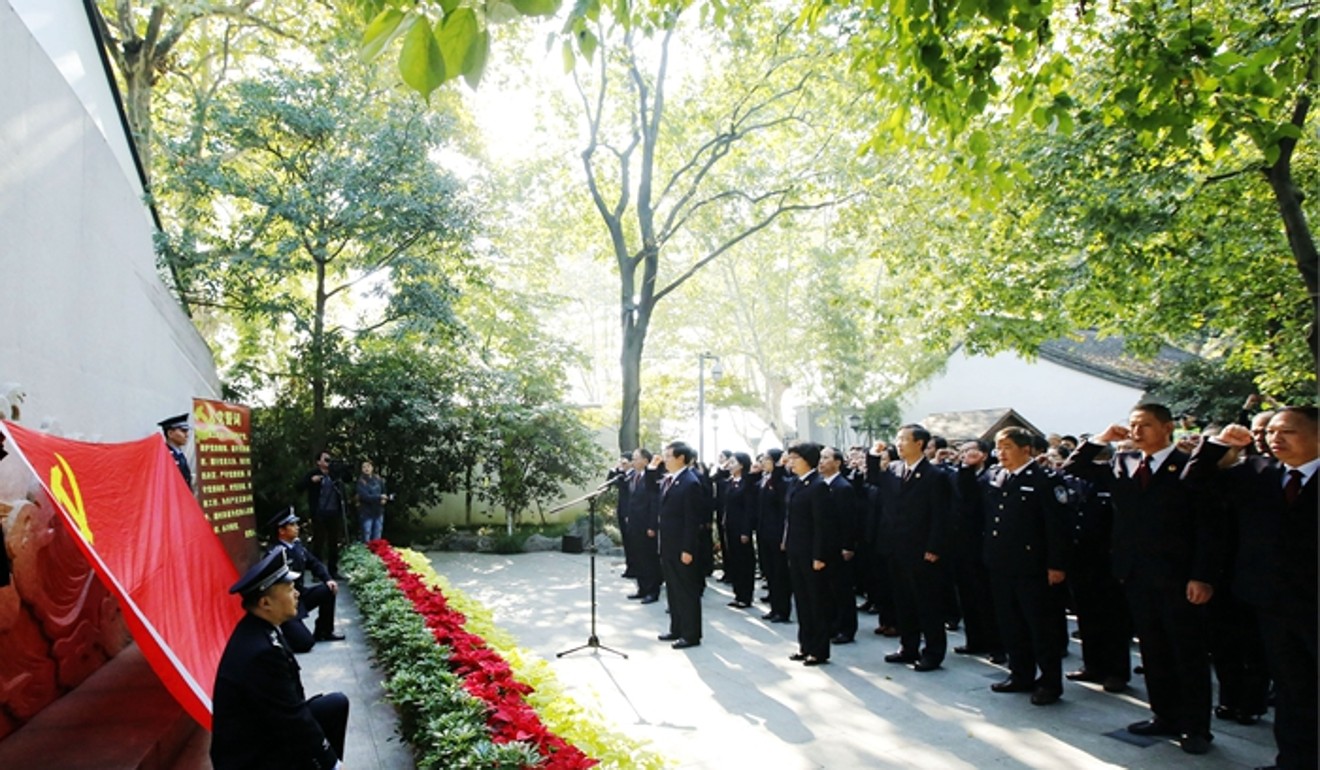
Chinese officials pay homage to tree planted by Xi Jinping as Communist Party chiefs get in touch with their roots
‘Red sites’ around the country see influx of senior figures as they use party’s revolutionary history to affirm loyalty to president’s agenda
A dozen high-ranking provincial officials have been chauffeured to a rural county in northern China to draw inspiration from a tree planted by President Xi Jinping eight years ago.
The Henan party committee members’ visit to the site in Lankao county was just one example of the recent phenomenon of Communist Party pilgrimages to “red sites” around the country.
The local party’s website report on the visit said the cadres gazed at the Paulownia tree, while thinking carefully about the mission of the Communist Party.
After visiting the tree, the group, led by provincial party boss Xie Fuzhan, listened to a poem composed by Xi about Jiao Yulu, the county’s former party chief whose death in the 1960s was attributed to overwork in official propaganda.
Xi initiated the trend for visiting “red sites” – places significant in Communist Party history – last week when he visited a museum in Shanghai that stands on the site of the party’s first congress in 1921.
Xi was accompanied by the six other Politburo Standing Committee members, who joined him in retaking the party oath while raising their fists and swearing allegiance to the party.
Analysts said the visit was meant to send a message that party building would be a priority at the start of Xi’s second term as general secretary.

Chen Daoyin, a Shanghai-based political analyst, said following Xi’s personal lead has become a key requirement for cadres after the leader further cemented his grip on power at the party congress last month.
“Xi is the core of the party, the incarnation of the party,” Chen said. “Whatever the core does should be followed.”
New Guangdong party chief Li Xi, an ally of Xi, visited the venue that hosted the third party congress in the provincial capital Guangzhou to retake his oath at a meeting on Sunday.
Officials in northern China’s Hebei province instead opted for the rural town of Xibaipo, where the party and the army leadership was based in the 1940s. They were photographed studying together while sitting on wooden stools in an old house.
Shanghai party boss Li Qiang, also an associate of Xi, was saved the trouble of looking for a place. He simply took other city officials to the same building Xi had visited a few days later.
Regarded as the most powerful Chinese leader in recent decades, Xi saw his status raised further after his ideology was enshrined in party charter at the 19th party congress last month.

Concerns about a personality cult have grown amid propaganda campaigns promoting Xi’s books and his political theories.
He has also been described as a “lingxiu”, a reverent term for “leader” that was used only in the era of Mao Zedong and his short-lived successor Hua Guofeng.
However, Xie Chuntao, a leading academic at the Central Party School, said on Tuesday that Xi’s rising profile was a result of people’s “heartfelt admiration and love for him,” and that the party had learned the lesson of the Cultural Revolution and believed a personality cult “will not reoccur”.
Some businesses have been looking to cash in on the enthusiasm for the party’s heritage.
Many red sites, such as Mao’s hometown in Hunan and the Red Army’s birthplace in Jiangxi, have seen a surge in visitor numbers over the past week, news website Thepaper.cn reported.
After visiting Shanghai, Xi and his entourage travelled to Jiaxing in eastern China’s Zhejiang province to see the “Red Boat”, a replica of the vessel on which the first congress in 1921 was concluded.
Lu Yi, a tour operator in the city said his staff had been inundated with calls from people who wanted to visit the same places as Xi, according to a report by Jiaxing Daily.
Another travel company in the city has launched a tour called “we walk on the road where the general secretary has walked”, the report said.

